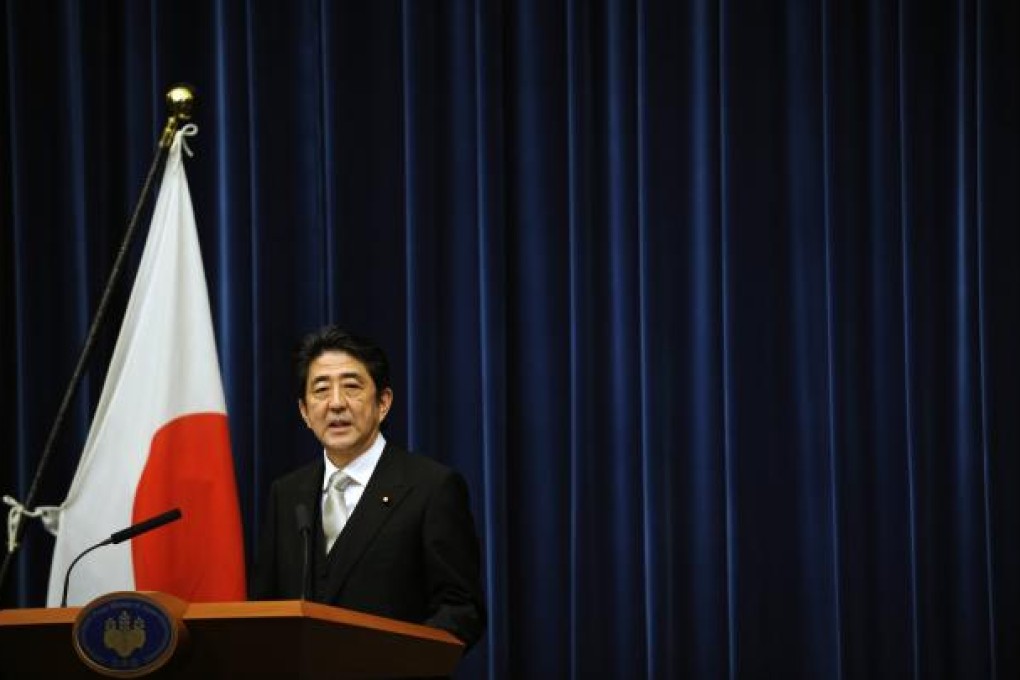Resolution to Diaoyu/Senkaku dispute out of Abe's hands
Robert Dujarric says the actions of China's leaders will shape the outcome

One of the major foreign policy challenges of Japanese Prime Minister Shinzo Abe is the ongoing friction over the Senkaku/Diaoyu islands that has flared up recently.
Abe himself is an old-fashioned reactionary who is nostalgic about the imperial regime that collapsed in 1945. He is blind to the extent of the crimes committed by the Japanese armed forces during the war of 1931-45 against China. This inability to acknowledge past atrocities mirrors the Chinese Communist Party’s own unwillingness to atone for the suffering it inflicted on its people.
However, in the field of foreign policy, Abe's nationalism will probably be muted. He will try to improve relations with China because no Japanese leader wants relations with Beijing to worsen. He has already sought better ties with South Korea, partly due to a realisation that Seoul and Tokyo share broadly similar goals when it comes to relations with North Korea and China.
Abe wants to amend the Japanese constitution to alter the war-renouncing Article 9. It is, however, unlikely that he will succeed. Neither his Komei party coalition partners nor the Japanese electorate as a whole are particularly enthusiastic about this scheme. Moreover, constitutional revision won't in itself lead to a more aggressive foreign policy or anything more radical than giving the Self-Defence Forces a new name.
The defence minister has indicated that the military budget may rise, but any growth will be minor and incremental. There is no appetite in Japan, including within the ruling Liberal Democrats, for the sort of massive peacetime build-up that occurred in the United States in the Carter-Reagan years.
As for the Diaoyus/Senkakus, there is little that Abe can do at this point. With regards to the contested Dokdo/Takeshima islands, Tokyo could abandon its hopeless claim for the sake of improving ties with South Korea. But since Japan has effective control over the Senkakus, it has fewer options. Giving them to China would be tantamount to caving in to Chinese threats. It would be unacceptable to most Japanese and also to Japan's protector, the US. It would also greatly worry South Korea, Taiwan, India and the Southeast Asian states confronting Chinese claims in the South China Sea.
Recognising that there is a dispute, which is one of Beijing's demands, would not "solve" the question. Moreover, given the de facto sanctions imposed by Beijing on trade with Japan and the recurrent incursions of Chinese state vessels (and in one case an aircraft) in areas controlled by Japan, it would look like a capitulation to China unless accompanied by some Chinese concessions.